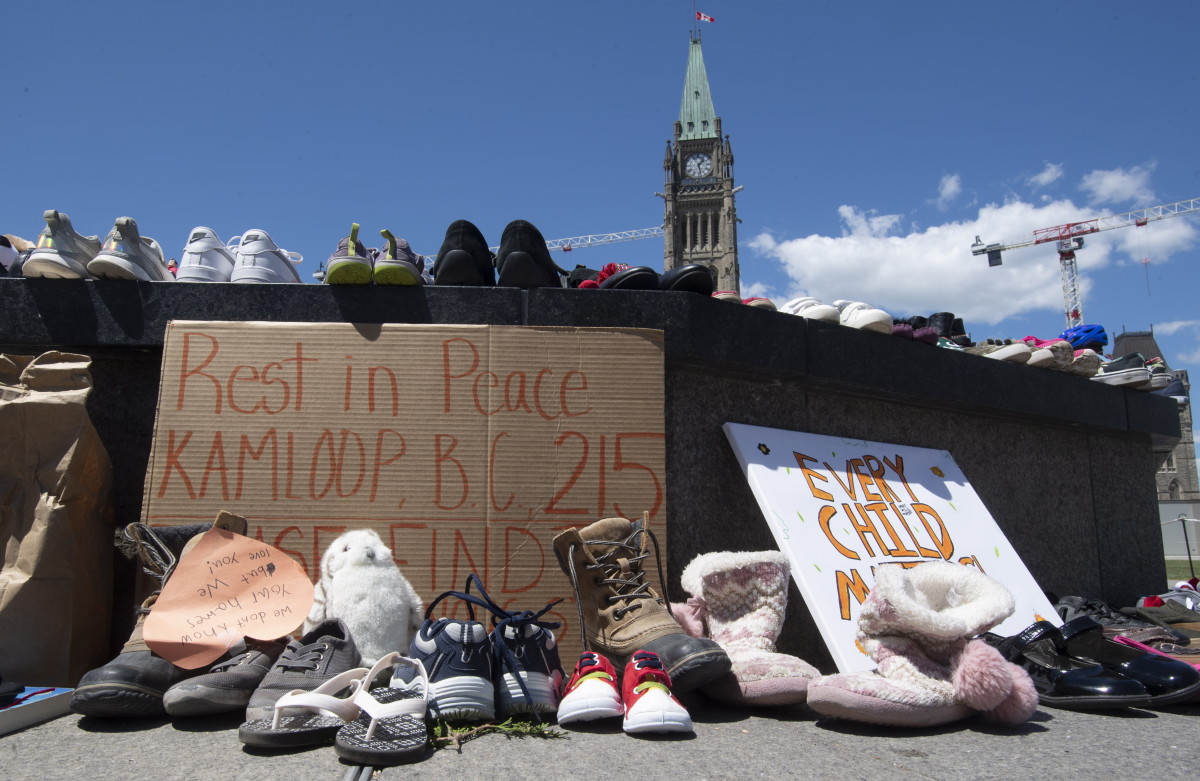Reimagining Canada Day 2021
Publication Date: June 2021

As we approach July 1st, following the horrific uncovering of hundreds of unmarked graves of Indigenous children near former residential “school” sites in BC and Saskatchewan, and an expectation of more to come, many are calling for the usual Canada Day celebrations to be cancelled. At the Global Centre for Pluralism, we are heeding this call and feel that this July 1st offers us an incredibly important moment of national reflection, which we urge people to take, across the country.
The cultural genocide that was inflicted on First Nations, Inuit and Métis people through the Residential School system is a stark example of how colonization laid a foundation for a wider system of racism and inequality in our society, which continues today to hold us back from being the pluralist nation that we aspire to be. Symptoms of these structural issues can be seen across our society, including in anti-Asian and anti-Black racism, as well as the Islamophobic attack against a Muslim family in Ontario that left four family members dead.
Communities are in mourning and calling for change. The usual displays of fireworks and parades distract from what this Canada Day needs to be about, and risks further entrenching division in our society. Let us use July 1st as an opportunity to learn about this country, not only what we thought we knew, but all of it.
Reflecting on colonialism is uncomfortable work. It requires us to face legacies of violence and racism that were part of the fabric of Canada’s creation. We do not do this to simply bring up feelings of guilt, but to educate ourselves in order to take action towards building a society has atoned for its past in order to move forward. Feelings of shame and discomfort can co-exist with pride in being Canadian – each of our identities is complex, and has space for these contradictory emotions.
Our past does not need to hold us back from becoming an inclusive and equitable country, but it will hold us back if we do not recognise it, reckon with it, and take real steps to redress and to reconcile.
As the Truth and Reconciliation Commission final report states, “’reconciliation’ is about establishing and maintaining a mutually respectful relationship between Aboriginal and non-Aboriginal peoples in this country. For that to happen, there has to be awareness of the past, acknowledgement of the harm that has been inflicted, atonement for the causes, and action to change behaviour”.
As Canadians, we all have a responsibility to reflect on how racism could be addressed throughout our governing institutions, schools and communities and to use Canada Day as a springboard to take concrete actions. These actions should heed the calls of countless Indigenous communities across the country and include committing as individuals, public and private institutions to respond to the Truth and Reconciliation Commission’s 94 Calls to Action. Pluralism at its core, is about action – actions taken to respond positively to diversity, to address inequities, exclusions and racism. We can all play a part.
We, like other organizations, are exploring how best to do so, both institutionally and programmatically. Today, we share some initial steps we are taking as an organization. In the past, staff have undergone the Indigenous Reconciliation Group’s Cultural Competence and Humility Course as a team. We are now adding the course as part of our onboarding for all staff so that we can continue this journey by educating ourselves. As our headquarters at 330 Sussex Drive in Ottawa sits on unceded Algonquin territory, we have committed to waiving our building rental fee for Indigenous owned and led organisations. We have commissioned a report by Archipel, an Indigenous-owned and women-led research company, which will be published in the coming months, examining the colonial history of our headquarters on Sussex Drive and the land it sits on. We aim to use this research as a starting point to inform how we can take our own work of reconciliation forward starting from the very ground where we stand.
We recognise these are small steps, but we are determined to do more and to learn from other organizations making commitments in this space. We are committed to listening, learning and acting.
We have spent many Canada Days proudly celebrating too narrow a narrative about Canada. We have an opportunity and obligation this year to reflect on the many rough edges in our history, with all of the complicated emotions that come with new and unsettling discoveries, something our recent Annual Pluralism Lecturer, author Maaza Mengiste, put so well. Let us use this time well, and draw hope from the many opportunities that exist to address the past and change behaviour to move forward to a future worth celebrating, together.
(Image: Adrian Wyld/The Canadian Press via AP)
Resources for Reflection
Read the TRC Calls to Action and Executive Summary of the Report:
- http://trc.ca/assets/pdf/Calls_to_Action_English2.pdf
- http://www.trc.ca/assets/pdf/Executive_Summary_English_Web.pdf
Learn through a course:
- https://www.ualberta.ca/admissions-programs/online-courses/indigenous-canada/index.html
- https://www.the-irg.ca/product/producticch3/
Learn through interactive websites:
- www.native-land.ca
- https://nac-cna.ca/en/indigenouscities/city/ottawa?utm_campaign=it-20-21-en-indigenouscities&utm_medium=email&utm_source=tm1engagement&utm_content=button-Ottawa&spMailingID=7029411&spUserID=MjQ5MzQ2MDU3MDE1S0&spJobID=1281465166&spReportId=MTI4MTQ2NTE2NgS2
Read:
- https://www.facinghistory.org/stolen-lives-indigenous-peoples-canada-and-indian-residential-schools/chapter-4?utm_source=hootsuite&utm_medium=facebook&utm_campaign=organic
- https://si-rshdc-2020.sites.olt.ubc.ca/files/2019/06/booklist.pdf
- Unsettling the Settler Within (Paulette Regan)
- Unsettling Canada: A National Wake-Up Call (Arthur Manuel, Grand Chief Ronald M. Derrickson)
- Settler: Identity and Colonialism in 21st Century Canada (Emma Battell Lowman, Adam J, Barker)
- Merging Fires: Grassroots Peacebuilding Between Indigenous and Non-Indigenous Peoples (Rick Wallace)
- The Inconvenient Indian
- 21 Things you May not Know about the Indian Act
Watch:
- The Grizzlies, Northwood Entertainment Inc. (thegrizzliesmovie.com)
- We Were Children (Trailer) by Tim Wolochatiuk – NFB
- Angry Inuk by Alethea Arnaquq-Baril – NFB
- Watch the Film – Highway of Tears (highwayoftearsfilm.com)
- Atanarjuat the Fast Runner by Zacharias Kunuk – NFB
Listen:
